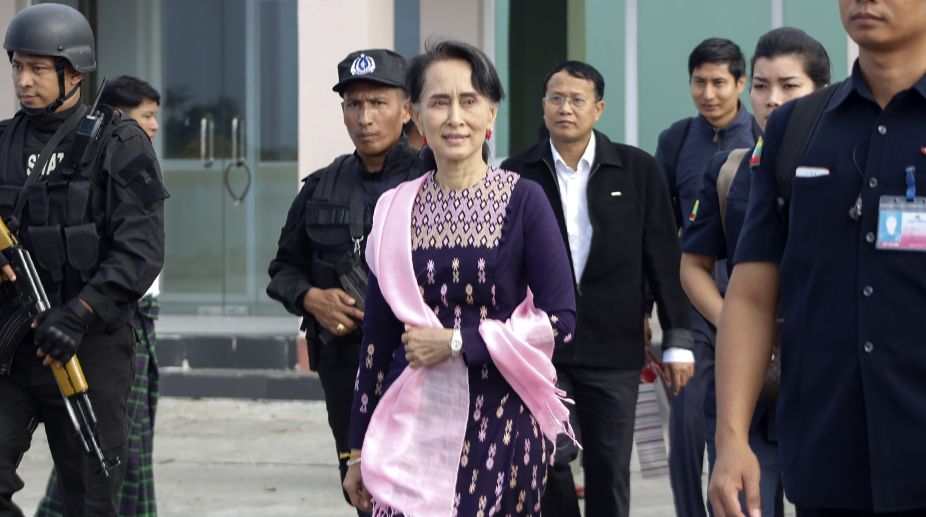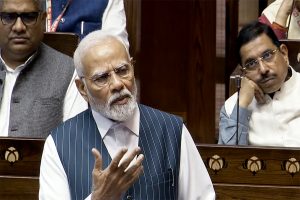While Asean maintained its non-interference principle regarding the Rohingya crisis at the end of a special summit in Australia yesterday, the group was urged to take a greater role in providing systematic humanitarian assistance to Myanmar’s violence-torn Rakhine state.
The group should provide sufficient and substantial assistance to all people in Rakhine as well as a comprehensive development plan, said Asian Peace and Reconciliation Council secretary-general Kobsak Chutikul.
Advertisement
The council is playing a crucial role in helping Myanmar to implement recommendations made by former United Nations chief Kofi Annan’s advisory board.
Myanmar’s de facto civilian leader Aung San Suu Kyi has picked veteran Thai diplomat Surakiart Sathirathai as council chairman to head the advisory board on the Implementation of Recommendations on Rakhine State.
Surakiart’s board, which includes senior Myanmar officials, will meet with Suu Kyi and Myanmar’s military commander in chief Min Aung Hlaing on March 29 to advise them about the implementation of Annan’s recommendations.
More than 700,000 refugees have fled Rakhine state since August last year when a militant group attacked Myanmar security outposts, prompting a harsh reaction and “clearance operation” by the Myanmar military, which killed thousands of people. Atrocities such as arson, torture, murder, gang rape and massacre have been reported by international NGOs and media since.
The UN human rights body has stated that there were elements of ethnic cleansing in the government’s actions and urged the Security Council to investigate the case, given that genocide could have taken place in the state.
The Australia-Asean Summit yesterday included comprehensive discussions about the Rohingya issue. Singapore Prime Minister Lee Hsien Loong, who currently chairs Asean, and Australian Prime Minister Malcolm Turnbull said in a press conference that Suu Kyi had sought humanitarian and capacity-building support from Asean members and other countries.
Myanmar’s neighbours were concerned about the ongoing situation but could not “force an outcome”, Lee said.
“It is of concern for all Asean countries, and yet Asean is not able to intervene and to force an outcome,” he said.
Both leaders said they would back efforts to reach a long-term solution to end the crisis, and were supporting humanitarian efforts to help people who had been displaced.
Surakiart is scheduled to meet with the Singaporean leader early next month to discuss whether Singapore, as the chair of the group, can boost Asean’s role in providing more humanitarian assistance to Rakhine state.
Asean could play a crucial role as it did in 2008 when Cyclone Nargis hit Myanmar, Kobsak said. Rakhine state was very poor and lacking many necessities for daily life, notably public-health services, he added.
“Why don’t we have healthcare services, which are open for all, in the state,” he said. “Problems in Rakhine state are very complex. It is not only about Muslims, but other races and religions also matter.”
Public services for all were important, he said. “Don’t forget that more than 120,000 internally displaced persons in the state also need assistance.”
Economic development and job creation was also important as Myanmar and Bangladesh prepared for the repatriation of hundreds of thousands of refugees to their homes, he said, adding that Asean was in a position to mobilise resources.
Refugees’ refusal
Rohingya in refugee camps and the international community have called for the safe return and protected areas in Rakhine before repatriation.
Rohingya refugees trapped in a “no man’s land” on the border after fleeing Myanmar will only accept repatriation to their home villages, rejecting moves to transit camps, for fear of long-term confinement, AFP reported yesterday.
Since August, several thousand Rohingya have been living in tents behind a barbed-wire fence, which roughly demarcates the border zone between the two countries, while relying on NGOs providing food.
Myanmar authorities are pressing hard for the return of refugees and have increased troop numbers on their side of the fence, accusing Rohingya militants of infiltrating the camp.
Despite the apparent show of force and looming monsoon rains, a camp leader told reporters that the group would not bow to pressure to return or to move further into Bangladesh.
“We have no intention to enter Bangladesh. We are not Bengali … we are Myanmar original citizens,” Dil Mohamed, 51, told reporters from behind barbed wire in an interview during a government-guided trip through the Maungdaw border district.
Dil said the villagers – who number around 6,000 – would return to Myanmar only if they were guaranteed safety, compensated for their homes that were burned down by the army and permitted to resettle in their old villages.
“We don’t want to go to the transit camps. We need to go directly to our homes,” he said. The transit camps have been set up by Myanmar authorities to “process” returning refugees. (The Nation/ANN)











